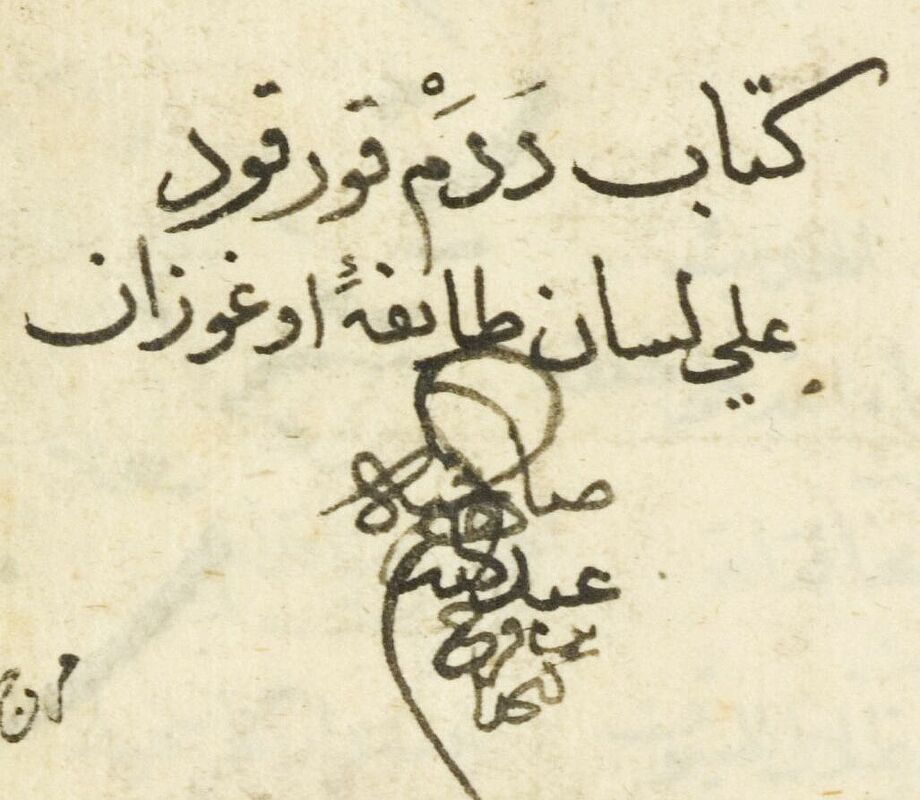Provenance
On the first page of the manuscript, below the title "Kitāb-ı Dedem Ḳorḳud ʿalā lisān-ı ṭāʾife-i Oġuzān", an owner ("ṣāhibu'l-kitāb") named ʿAbdurrahīm b. Ferruḥ Kedḫudā is mentioned, about whom nothing more is known. Who, at what time and in what place, wrote the name of Özdemiroğlu Osman Pasha, grand vizier and general under Sultan Murad III (r. 1574-1595), and the year of his death, 993 d. H. [= 1585 o.c.] in the upper right corner of the page is also unknown. Osman Pasha died shortly after the capture of the residential and commercial metropolis of Tabriz (Iran, province of East Azerbaijan) on the Silk Road, where European merchants and diplomats also frequented.
It is still unknown when and how the manuscript came to Dresden. It was first listed in a handwritten catalogue of the oriental manuscripts of the Electoral Library in Dresden (ca. 1754) as "Vita ac gesta Dedem Corcut idiomate Oghuzano" (="Life and deeds of Dede Korkut in the Oghuzan language"). It was kept in the 5th cabinet as no. 86 of a total of 278 Oriental manuscripts.
Various routes of the manuscript are conceivable. Was it captured during the conflicts with the Turks outside Vienna in 1683 or Buda in 1684/1686? Was it offered to the library for sale? Was it purchased from the estate of a private collector? Was it given as a gift? Several previous owners of oriental manuscripts in the SLUB are known by name, of which only the most important are mentioned here: In 1722, several oriental manuscripts were also acquired with the book collection of Duke Moritz Wilhelm of Saxe-Zeitz, who died in 1718 (in the catalogue of his library, however, there is no entry referring to the Dede Korkut manuscript). From the possession of Adam Derengowski (also: Dorengowski), royal Polish vice-general prosecutor, secretary to the Polish-Turkish envoy Stanislaw Chomentowski in 1712, some Turkish manuscripts came into the library after his death in 1726. Between 1728 and 1732, the Leipzig bookseller Moritz Georg Weidmann (1686-1743) sold several manuscripts to the Electoral Library, some of which came from Vienna. In 1753, from the estate of the orientalist Siegmund Gottlob Seebisch who worked as librarian at the Electoral Library in Dresden from 1708 to 1746. Among them were manuscripts from the possession of the important Orientalists Jacobus Golius and Andreas Acoluthus. In the same year, the Polish-Saxon dragoman Francesco Crescenzo Giuliani, who, sponsored by Heinrich von Brühl, travelled between Dresden, Warsaw and Istanbul from 1736 until his death in 1764, sold some manuscripts to the library.



